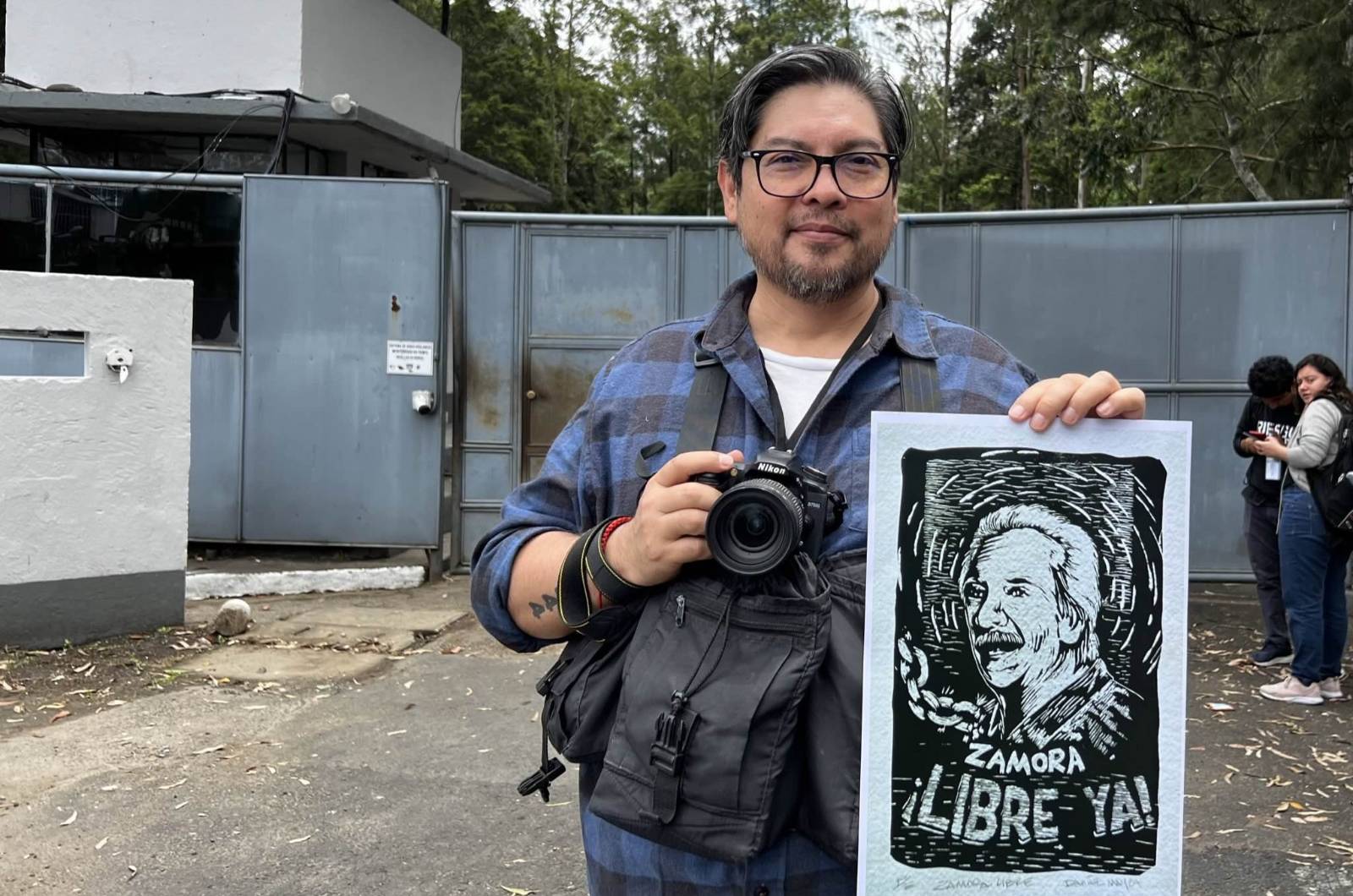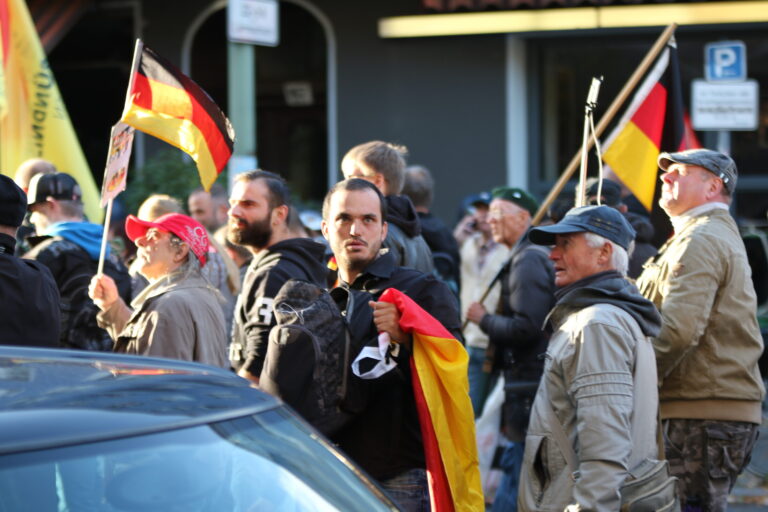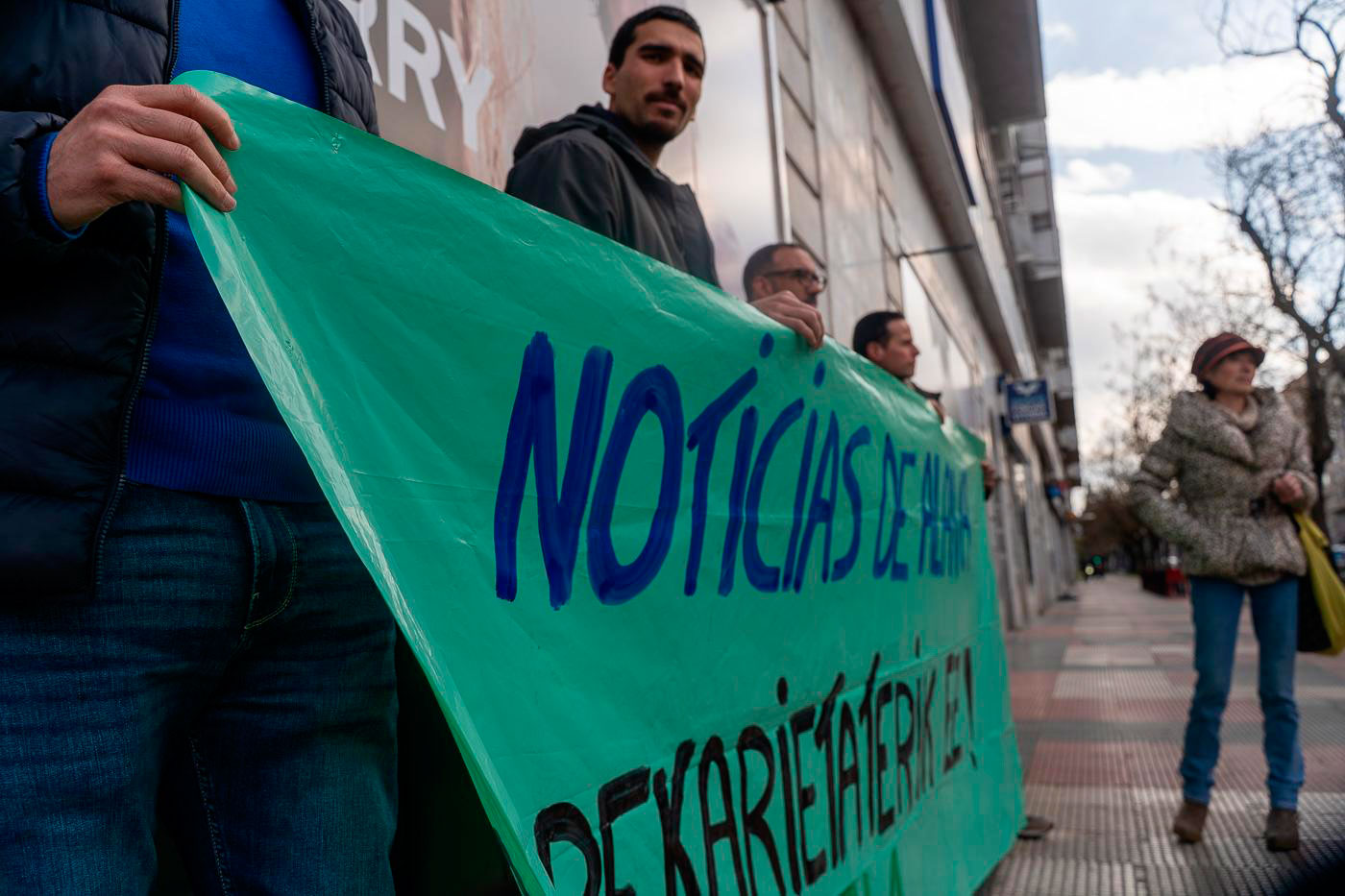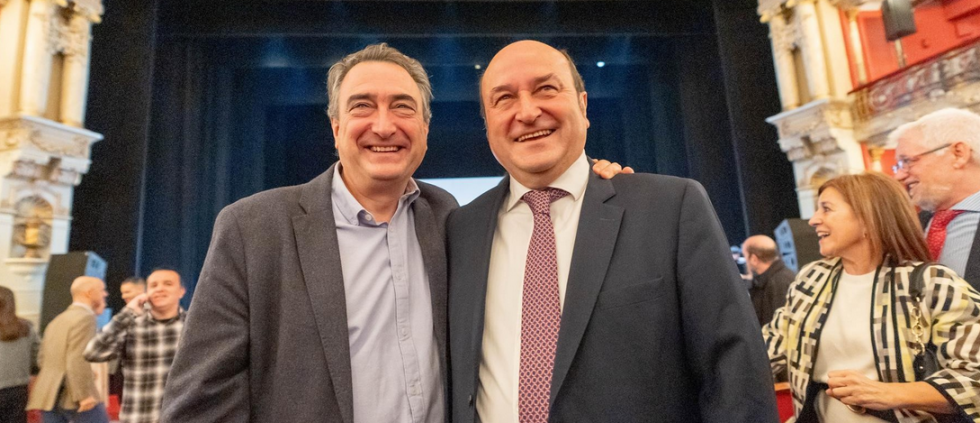Tantaka TV: "Popular issues don't appear in the hegemonic media"
- "Social television," this is how the communication project Tantaka TV is presented. Tamara de Gracia, resident in Barrika, and Eneko Calle de Urduliz, have been in charge of reporting the details of the event.

The NGOs Euskadi-Cuba, Mugarik Gabe and Dignity and Peace began working on the project to create a television in 2016. The project was presented to the Basque Government, but on that occasion they did not get the funding they had to get. Yes in 2017. Most of 2018 started preparing, and in November they started creating content with a team of four people. They were launched with half of the planned programming, but 100% of the grid has been completed. The studies of Hamaika Telebista use the means to record the number of programmes. For dissemination, Internet.
You were clear that the project had to be television. Why?
TAMARA DE GRACIA Because we saw that it didn't exist in our field. There are some things Ahotsa.info and others, but they follow the present. We wanted to make a video library... Well, that's not either, but it's that at the moment we don't touch the present, we have sixteen programs, but attenporal ones. We also wanted to devote ourselves to youth and we have set up sessions aimed at them. We've done clever, deep conversations and conversations, but we've also done some other kind of sessions, of humor, more agile ...
ENEKO CALLE One interesting thing that the public media have in comparison to the hegemonic media is that citizens go from consuming information to producing. We do it and we put it on the net. Information made by Euskadi-Cuba remains a means of communication, and we, the NGOs Peace and Dignity and Mugarik Gabe, already made audio-visual… Tantaka is a platform to network all of them. We have experience collaborating with some media, so…
If you are looking for information about you, the words "alternative" and the word "counterinformation" repeatedly appear. How do you interpret that? What is the alternative?
T.D.G. : To say what hegemonic media do not count, or what we are told in a way we do not like, in our own way. Above all, giving the floor to those who know. We try to bring expert people, but using words that we can all understand, to bring complex issues closer to society.
R. C.: When we introduced Tantaka TV in November, we were asked in some local media "why another medium?" You say that you have learned from Ahotsa, Hala Bedi, Arrosa Sarea, Argia… or that you have created Tantaka looking at them, but why another means? What gap have you seen in them to create Tantaka? ". And our answer was that we haven't seen any holes, especially we came to complete them. Our relationships, contacts, knowledge -- they help us do that.
Of the topics that your associations deal with, what do hegemonic media silences?
T.D.G. Almost everything, I would say. We have two or three counter-information sessions, one called Censurers. We give the floor to those who have suffered censorship, that is not possible in the hegemonic media. In another session we looked at how the powers of the media formed, it is clear that they will never count that.
E.C. : I would say that the issues related to urbanism do not appear in the hegemonic media. The information about Bilbao, in these media, will be tourism, the development of the city… And many other things are left out: contexts, like armed conflicts, the power of the multinationals, how these multinationals are in full ownership of the hegemonic media… In them you will not hear anything against Iberdrola, and in Gout, yes.
T.D.G. : Major television stations can inform you of the annual action against BBVA, but without explaining the reason in depth. The same applies to global conflicts: Sahara, Kurdistan... They're very complex, and people only know about them the main title. We count it in sessions of 5-10 minutes, with data, images...
Can you do that in 5-10 minutes?
T.D.G. Yes. During this time enough images of the situation can be given. Many people are not prepared to start reading a report on Palestine that I do not know how many pages, but if you explain it that way you will see it ...
What linguistic criteria do you have? I've read somewhere that the goal is to be bilingual.
E.C. : We haven't held any accounts so far. In February we will have the first evaluation meeting with the Political Council [see additional text], which will be one of the criteria. But I think we're close to the goal of bilingualism, it's being easier than we thought we would produce in Euskera. However, within this balance, we try to explain to the people we invite that Tantaka Telebista has an advantage that despite being born in Euskal Herria is also very continuous in the State, even in Latin America. And we want to address some issues in Spanish. For example, torture. There are themes that in Euskal Herria are always working in Euskera and that appear in ETB1, and it seems that those who see ETB2, the Castellanospeakers, are not interested.
T.D.G. : Torture, children with backpacks...
E.C. : We know that we ask some guests to make an effort, because being Euskaldunes we ask them to do so in Spanish, so that they can then spread in other channels.
Tantaka is made in Bilbao, but the idea is that it's from all over Euskal Herria, right?
T.D.G. : Hala Bedi said this very well of himself and I don't know why we're not humble to say it. Hala Bedi's point of view is from all over Euskal Herria, but it is in Vitoria-Gasteiz and, therefore, they have things closer to Vitoria-Gasteiz. We are in Bilbao, but we tell things that happen all over Euskal Herria. Now the documentary Altsasukoaz will be taken out, we have gone to Irun to interview Fermin Muguruza, we have been in the Errekaleor neighborhood of Gasteiz… We go to the places we have to go. We can't be in Tudela all the time, but we try to tell the things that need to be told. At the moment we have forgotten the North; one of the things we have pending is to get in touch with the television Kanaldude…
They began to work thanks to the money given to them by the Basque Government. Do you also have other sources of funding?
T.D.G. : Not yet. Advertising? We have not thought about the future. The current funding ends in December, and we intend to apply for another two years. But now we don't want to do it.
E.C. : There is a tension there. Most media outlets that have emerged from popular construction are self-managed. There's a clash here. NGOs, subsidies and self-management. Umm, we'll see. Some actors present at the Tantaka Political Council advocate self-management, and believe that Tantaka should take that path. But how do you make such a big project viable? That debate will be there, it has always existed in this people. To what extent a means of communication is conditioned by receiving a subsidy from the administration… At the moment we are free, but there is this tension.
Political Council for the Preservation of Values
Tantaka TV is defined by four values: feminist, internationalist, plural and sustainable. In order to verify compliance with these guidelines and to ensure the collective character of the project, a Political Council has been created consisting of different media, associations and journalists. Pikara Magazine, Ecuador-Etxea, Latin American Abstract, Joxemi Zumalabe Fundazioa, Reas Euskadi, Ernai, Ekologistak Martxan, Hala Bedi, Komite Internazionalistak and Stalde are present in the council.
Learning to do TV
"We have the will, the enthusiasm and the desire, but half of the workforce has not had experience in the world of journalism or communication. Before we start creating content in November, we've done intensive training, we've done a four-year career in three months, haha. One of the challenges for 2019 is to teach what we have learned from other public actors so that they can produce their sessions."
In 2025, at least one journalist was murdered in Guatemala and another disappeared. It is dangerous to do journalistic work in this country, and so has Reporters Without Borders, in the World Press Freedom Classification 2025, published on May 2. Guatemala ranks 138th out of 180... [+]
Apirilaren 24an, ETB1ean, jendeak aspalditik eskatzen zuen programa eredu bat estreinatuko da: Linbo, late night formatuko ordubete inguruko saioa, gazteek eta gazteentzat egina.
"Ask for your turn and we'll join you," the willing and cheerful announcer who speaks from the studios tells the young correspondent who walks through the streets of Bilbao. The presenter immediately addressed the audience. "In the meantime, we are going to Pamplona..." They opened... [+]
I have to confess a sin here. Four years ago, I introduced a new habit into my life: on Sunday nights, I began to watch the ultra-right television channel CNews, which spreads continuous "information" like a cannon of shit. What was at first half an hour a week, has at any given... [+]
Martxoaren 14an Donald Trumpek agindu exekutibo bat sinatu zuen, hainbat berri agentziak jasotzen duten diru kopurua asko murrizteko. Kaltetuetako bat United States Agency for Global Media (USAGM) izan zen eta, ondorioz, Voice of America (VOA), Radio Free Europe/Radio Liberty... [+]
USAIDen inguruko txolopotearen ondoren, espero beharrekoa zen. Baina, hala ere, urte askotan haien jarraitzaileak izan garenok, samin-puntu batekin hartu dugu albistea. Martxoaren 15ean, Trump administrazioak, kolpetik, erabat itxi baitu United States Agency for Global Media... [+]
Gaur abiatu da Bizi Baratzea Orrian kide egiteko kanpaina. Urtaro bakoitzean kaleratuko den aldizkari berezi honek Lurrari buruzko jakintza praktikoa eta gaurkotasuneko gaiak jorratuko ditu, formato oso berezian: poster handi bat izango du ardatz eta tolestu ahala beste... [+]
Alemaniako Poliziak asteleheneko gertakariaren arrazoiak "politikoak" zirela baztertu duen arren, 35 urteko Alexander Scheuermann Ring Bund talde neonaziko kide zen. Bi hildako eta hamar zauritu utzi dituen atentatuaren egileak sare sozialetan "gorroto mezuak"... [+]
Lan baldintzen "prekarietatea" salatzeko kontzentrazioa egin zuten asteartean egunkariaren egoitzaren aurrean. Abenduaren 2tik sindaura greban daude langileak eta mobizlizazioak "areagotzea" erabaki dute orain.
Urtea baino gehiago da Olatz Simonek –EITBko berriemailea Parisen, garaian–, orrialde hauetan bertan ohartarazi zigunetik Bruselak kazetariari lanbideaz erakusten dionaz. Eta halaxe joan gatzaizkio galdezka Amaia Portugali. Bruselan gure irrati publikoak duen... [+]
Langileek salatu dute zuzendaritzak ez diela lan baldintzen gaiari heldu nahi izan eta enpresak nahiago izan duela Gaztea Sariak ekitaldia bertan behera utzi, “horrek sortutako albo-kalte ekonomiko eta sozial guztiekin”, arazoari irtenbidea eman baino.
Joan den asteartean La Vanguardia-n argitaratutako artikuluan egin zuen proposamena Txema Montero abokatu bizkaitarrak. 30 urtez Deia egunkariko kolaboratzailea izan da eta lehenik hara bidali zuen bere artikulua, baina egunkariak ez zion argitaratu.




















